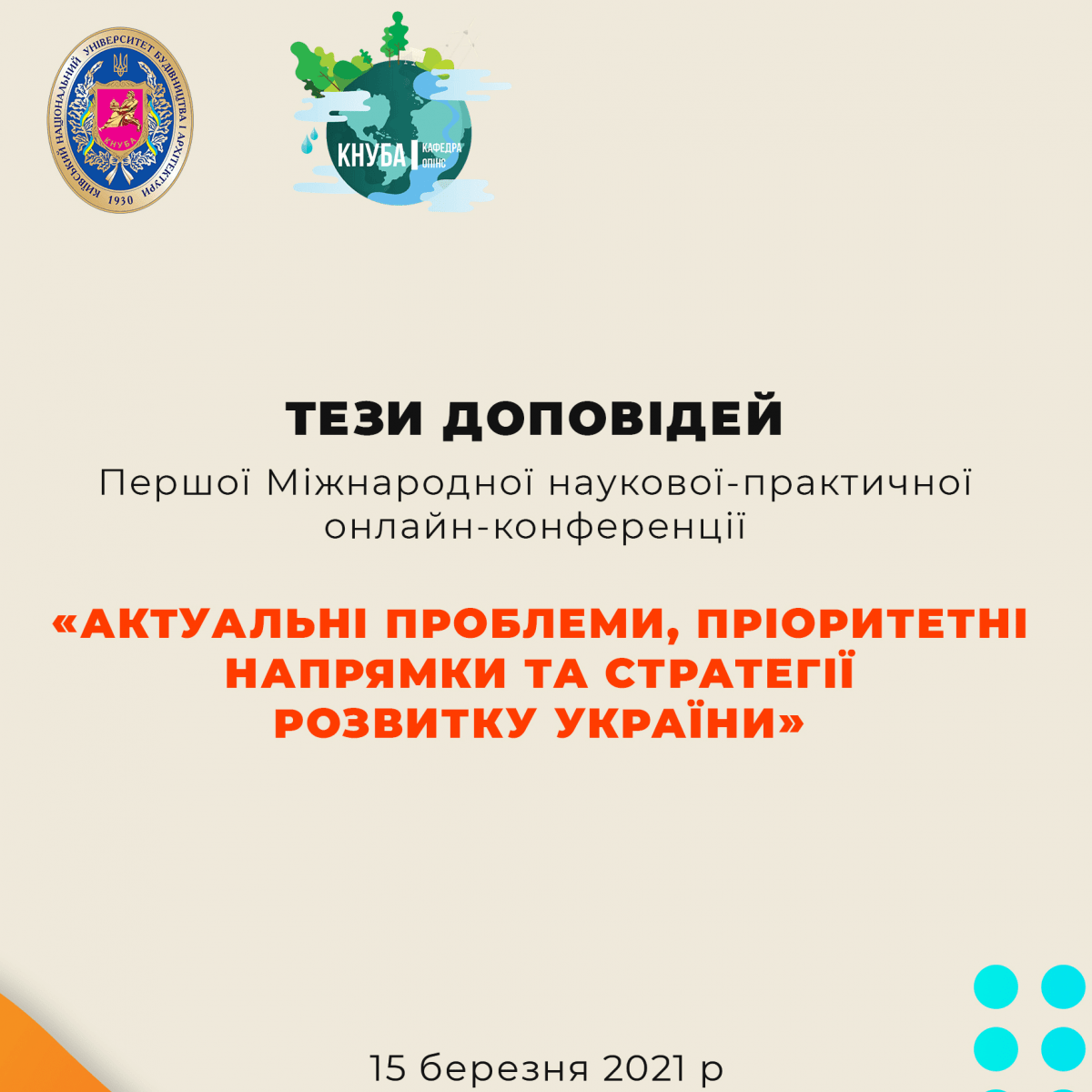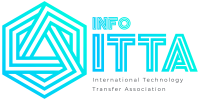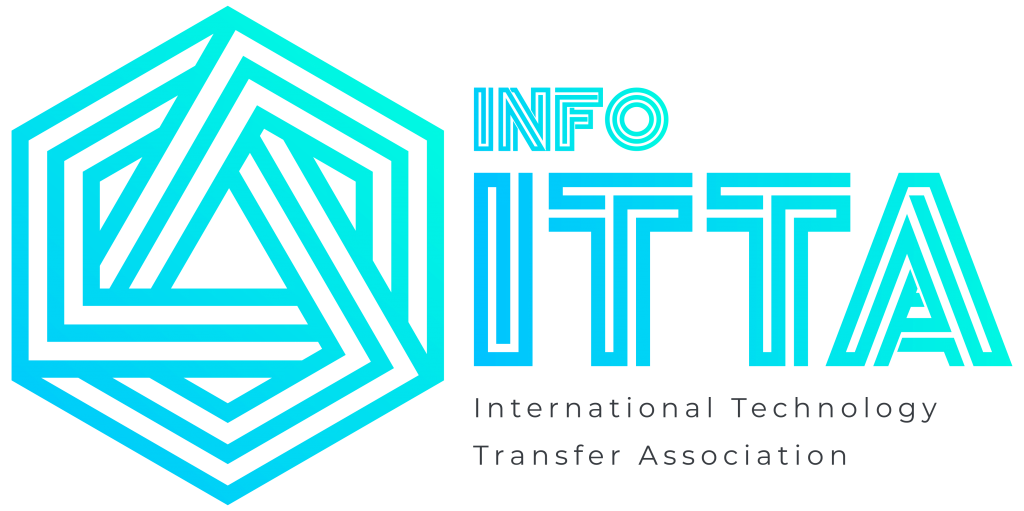Recent Posts
- Ukraine recovery should be based on development of territorial communities, innovations, involvement of professional domestic community – results of ESUR forum 29.06.2023
- Ukraine repatriates five more seriously wounded Russian POWs 10.04.2023
- Rada intends to include history of Ukraine, foreign language in final certification for general secondary education 10.04.2023
- Rada terminates protocol on joint anti-terrorist measures in CIS territories for Ukraine 10.04.2023
- 100 Ukrainians, incl defenders of Mariupol, returned according to swap procedure – Yermak 10.04.2023
Criteria of a teacher’s readiness for professional self-development

Ненько Юлія
(Черкаси, Україна)
ОСВІТА
(Проблеми підготовки фахівців)
criteria of A teacher’s readiness for professional self-development
Reforms in the education systems of many countries actualize the problems of professional self-development of a teacher. Readiness for personal and professional self-development is recognized as one of the key characteristic of a specialist. Therefore, factors that promote teachers’ readiness for professional self-development beyond their initial training and types of effective self-development are in the focus of attention of modern science.
The national policy documents [6; 7, etc.] state that professionals who can learn through life, think critically, set goals and achieve them, work in a team, communicate in a multicultural environment and have other modern competences are expected to be the more successful in the labour market. The most important of these is the teacher’s ability for on-going learning, which is defined by the Teaching and Learning International Survey as activities that develop an individual’s skills, knowledge, expertise and other characteristics as a teacher [4].
The content of the reviewed articles revealed that readiness for professional self-development is the ability to seek and assimilate new knowledge, acquire new skills, arrange the educational process through effective management of resources and information flows; the ability to determine educational goals and ways to achieve them, to build an individual professional trajectory, to evaluate and predict the results of activities. Therefore, it is important that a teacher is not just competent in the chosen field, but constantly strives for professional self-development [2].
To determine the level of readiness of the individual for professional self-development, it is necessary to operate with appropriate criteria and indicators. Based on the analyzed theoretical works of a wide range of scholars [1; 3; 5; 8; 9] the gnostic, acmeological, technological, axiological, and reflexive criteria have been differentiated to diagnose the formation of this integrative personality trait.
The gnostic criterion implies the perfect mastery of methodical and specialized knowledge.
The acmeological criterion determines teachers’ attitudes toward professional self-development; awareness of the role of professional self-development; strong interests in the field of profile discipline, as well as pedagogy and psychology; the need for professional self-development; motivation to achieve a high level of professionalism; adequate self-esteem and self-respect; correction of personal and professional qualities to achieve high levels of competitiveness; focus on achieving high professional development results; use of effective methods of self-regulation in professional pedagogical activity.
The acmeological criterion can be provided by the increase in requirements for the personal and professional qualities and indicators of professional activity of a teacher by administration (available strategic plan and tasks of professional self-development; the use of innovative educational technologies in student learning; involvement in research activities; professional growth).
The technological criterion involves mastering psychological, pedagogical and methodical techniques and skills of educational activities. Indicators: psycho-pedagogical, methodical and special abilities and skills; ability to identify problems; capacity of mental operations (systematization, analysis, synthesis, abstraction, comparison, generalization, etc.); ability to work with information sources to improve intellectual level.
The reflective criterion includes: ability understand and correlate own capabilities with social requirements; self-awareness, reflection, self-control, independence and adequate self-esteem. The main indicators: persistence, resistance to failure, etc.
To finalize, it should be noted that due to the rapid development modern society requires not only high-quality teacher workforce, but also specialists who are able to on-going study, improve their skills in accordance with the requirements of modern labor market.
Although situated in the Ukrainian context, the study contains applicable ideas about a wide range of continuing professional development activities. These sharings about teachers’ professional self-development further highlight the importance of this aspect of professional careers.
References:
- Андреев В. Педагогика творческого саморазвития: инновационный курс: в 2-х кн. Кн. 1. Казань: Из-во Казан. ун-таб 1996. 566 с.
- 2. Авшенюк Н., Кудін В., Огієнко О. Модернізація педагогічної освіти в європейському та євроатлантичному освітньому просторі: монографія. Київ: ВИДАВ, 2011. 342 с.
- Балл Г. Гуманізація загальної та професійної освіти. Неперервна професійна освіта: проблеми, пошуки, перспективи: монографія. Київ, 2000. С. 134-157.
- Creating Effective Teaching and Learning Environments: First Results from TALIS. Retrieved from http://www.oecd.org/edu/talis/firstresults.
- Hoekstra, A., Korthagen, F. (2011). Teacher learning in a context of educational change: Informal learning versus systematically supported learning. Journal of Teacher Education. 62, no. 1, pp. 76–92.
- Національна доктрина розвитку освіти України в ХХІ столітті. Педагогічна газета. № 7 (85), 2001.
- Проект Національної стратегії розвитку освіти в Україні на 2012-2021 роки. Режим доступу: http://www.iitzo.gov.ua/files/proekt_rozvitku_!osviti_2012_2021_doc
- Рудкевич А., Рибалко Е. Возрастная динамика самореализации личности. Психология личности в работах отечественных психологов. Сост. и ред. Л.Куликов. Санкт-Петербург: ПИТЕР, 2002. С. 297-305.
- Тихонова Т. Педагогічні умови професійного саморозвитку майбутнього вчителя інформатики: автореф. дис. Інститут Педагогіки НАПНУ. Київ, 2002. 20 с.

